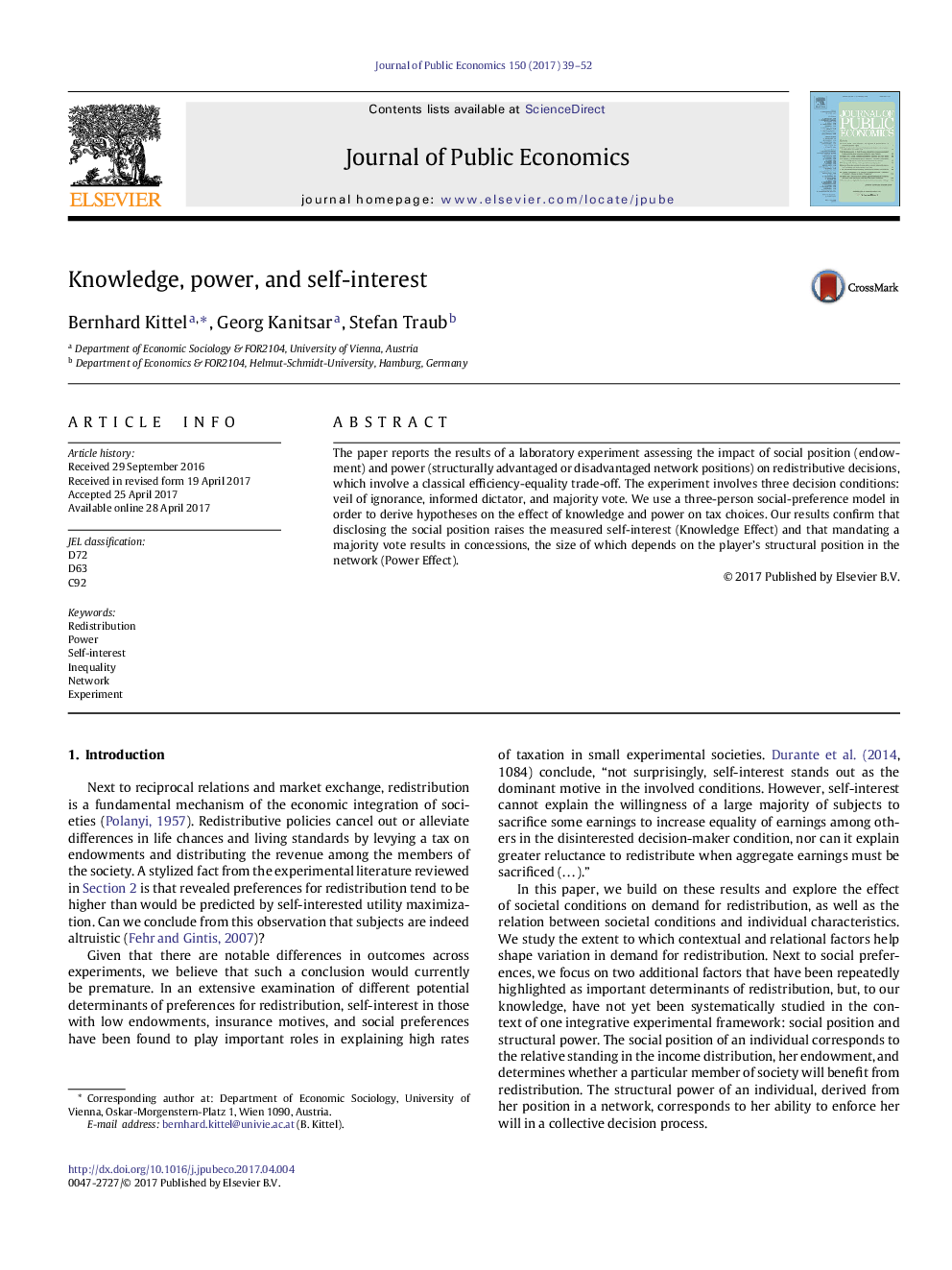| Article ID | Journal | Published Year | Pages | File Type |
|---|---|---|---|---|
| 5101794 | Journal of Public Economics | 2017 | 14 Pages |
Abstract
The paperreports the results of a laboratory experiment assessing the impact of social position (endowment) and power (structurally advantaged or disadvantaged network positions) on redistributive decisions, which involve a classical efficiency-equality trade-off. The experiment involves three decision conditions: veil of ignorance, informed dictator, and majority vote. We use a three-person social-preference model in order to derive hypotheses on the effect of knowledge and power on tax choices. Our results confirm that disclosing the social position raises the measured self-interest (Knowledge Effect) and that mandating a majority vote results in concessions, the size of which depends on the player's structural position in the network (Power Effect).
Related Topics
Social Sciences and Humanities
Economics, Econometrics and Finance
Economics and Econometrics
Authors
Bernhard Kittel, Georg Kanitsar, Stefan Traub,
